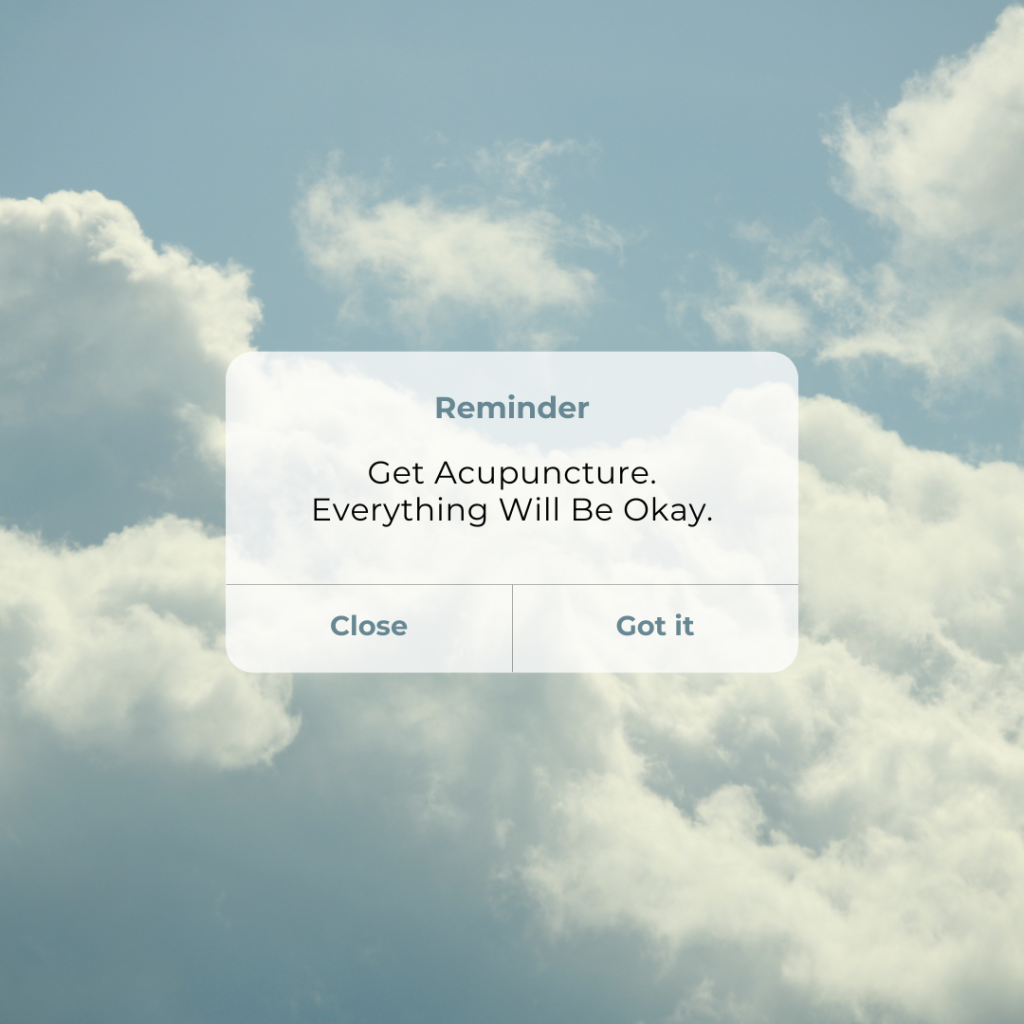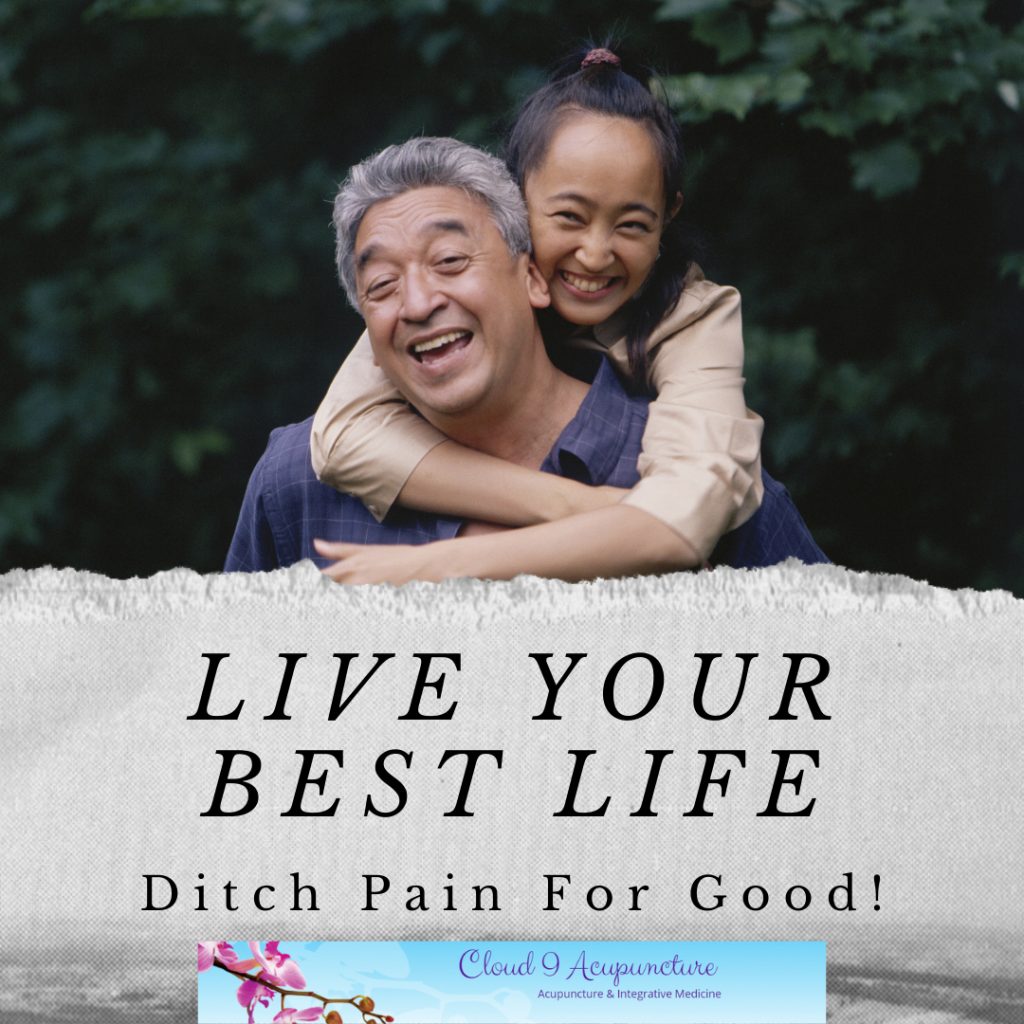- Cloud 9 Acupuncture & Integrative Medicine22 West Padonia Rd. Suite A-203
Timonium, MD 21093
Acupuncture Studies
Acupuncture for Boosting Your Immune System
Your immune system is your body’s defense against infection and disease. It is made up of a variety of cells, tissues, and organs that work together to protect you from harmful germs.
There are a number of things you can do to boost your immune system, including eating a healthy diet, getting regular exercise, and getting enough sleep. Acupuncture is another natural way to boost your immune system.
What is acupuncture?
Acupuncture is a traditional Chinese medicine (TCM) practice that involves inserting thin needles into specific points on the body. These points are believed to be connected to energy meridians, which are channels that flow through the body.
When needles are inserted into these points, they are thought to stimulate the flow of energy and promote healing.
How can acupuncture boost your immune system?
There is some evidence to suggest that acupuncture can help to boost the immune system. For example, one study found that acupuncture was effective in increasing the number of white blood cells, which are essential for fighting infection.
Another study found that acupuncture was effective in reducing inflammation, which can weaken the immune system.
How does acupuncture work to boost the immune system?
The exact way that acupuncture works to boost the immune system is not fully understood. However, it is thought that acupuncture may help to:
- Increase the production of white blood cells
- Reduce inflammation
- Improve circulation
- Promote the production of natural killer cells, which are a type of white blood cell that helps to fight infection
Is acupuncture safe for boosting the immune system?
Acupuncture is generally considered to be safe for boosting the immune system. However, it is important to see a qualified acupuncturist who is experienced in treating this condition.
How many acupuncture sessions will I need?
The number of acupuncture sessions you will need will vary depending on your individual needs. However, most people see improvement after a few sessions.
Can acupuncture be used alongside other treatments for boosting the immune system?
Yes, acupuncture can be used alongside other treatments for boosting the immune system, such as medication or lifestyle changes.
If you are considering acupuncture for boosting your immune system, call us today to schedule an appointment and learn more about how acupuncture can help you boost your immune system.

Acupuncture for Lyme Disease: Can It Help?
Lyme disease is a bacterial infection that can be transmitted to humans through the bite of an infected tick. Symptoms of Lyme disease can vary depending on the stage of the infection, but they can include fever, headache, fatigue, muscle aches, and joint pain. In some cases, Lyme disease can also cause more serious complications, such as neurological problems, heart problems, and arthritis.
There is no one-size-fits-all treatment for Lyme disease, but antibiotics are often prescribed to kill the bacteria. In some cases, acupuncture may also be used to help relieve the symptoms of Lyme disease.
Acupuncture is a traditional Chinese medicine practice that involves inserting thin needles into specific points on the body. These points are believed to be connected to the body’s energy system, and stimulating them can help to improve the flow of energy and promote healing.
There is some evidence to suggest that acupuncture may be effective in helping to relieve the symptoms of Lyme disease. A 2014 study found that acupuncture was effective in reducing pain and improving sleep quality in people with Lyme disease. Another study, published in 2016, found that acupuncture was effective in reducing fatigue in people with Lyme disease.
If you are considering acupuncture for Lyme disease, it is important to talk to your doctor first. Acupuncture is not a substitute for conventional medical treatment, but it may be a helpful complementary therapy.
Here are some of the benefits of using acupuncture for Lyme disease:
- Can help to relieve pain
- Can improve sleep quality
- Can reduce fatigue
- Can improve mood
- Can boost the immune system
- Can help to reduce inflammation
If you are interested in trying acupuncture for Lyme disease, be sure to call the clinic for a consultation.

The Benefits of Acupuncture for Fibromyalgia
Fibromyalgia is a chronic pain disorder that affects millions of people worldwide. It is characterized by widespread pain and tenderness, fatigue, sleep problems, and cognitive difficulties. There is no cure for fibromyalgia, but there are treatments that can help relieve symptoms.
Acupuncture is a traditional Chinese medicine (TCM) therapy that involves inserting thin needles into specific points on the body. It is thought to work by stimulating the body’s natural pain-relief mechanisms.
There is growing evidence that acupuncture can be an effective treatment for fibromyalgia. A systematic review of 13 randomized controlled trials found that acupuncture was effective in reducing pain, fatigue, and stiffness in people with fibromyalgia.
Another study found that acupuncture was as effective as medication in relieving pain and improving quality of life in people with fibromyalgia.
Acupuncture is a safe and well-tolerated treatment for fibromyalgia. It is generally considered to be a complementary therapy, meaning that it can be used alongside other treatments, such as medication or physical therapy.
If you are considering acupuncture for fibromyalgia, talk to your doctor. They can help you decide if acupuncture is right for you and recommend a qualified acupuncturist.
Here are some of the specific benefits of acupuncture for fibromyalgia:
- Reduces pain
- Improves sleep
- Improves mood
- Reduces fatigue
- Improves cognitive function
- Increases flexibility
- Improves overall quality of life
If you are interested in trying acupuncture for fibromyalgia, here are some things to keep in mind:
- Find a qualified acupuncturist who is experienced in treating fibromyalgia- like Cloud 9 Acupuncture!
- Be patient. Acupuncture may take several treatments to see results.
- Be willing to work with your acupuncturist to develop a treatment plan that is right for you.
If you are looking for a natural and effective treatment for fibromyalgia, acupuncture may be a good option for you. Start today by calling to book a consultation to see if you are a good candidate for treatment.

Acupuncture for Fertility: What You Need to Know
Acupuncture is a traditional Chinese medicine (TCM) practice that is helpful to boost fertility. Regardless of what part of the fertility journey you are on, whether it’s trying to conceive (TTC) naturally, or by using a fertility center and possibly pursuing IVF or IUI, Cloud 9 Acupuncture & Integrative Medicine can help.
There is some scientific evidence to support the use of acupuncture for fertility. A study published in the journal Fertility and Sterility found that women who received acupuncture in addition to conventional fertility treatments were more likely to conceive than those who received only conventional treatments.
If you are considering acupuncture for fertility, it is important to find a qualified acupuncturist who has experience in this area. You should also be aware that acupuncture is not a cure for infertility, but it may be a helpful complementary treatment.
Here are some of the ways that acupuncture can help improve fertility:
- Reduce stress: Stress can have a negative impact on fertility, and acupuncture is fantastic at reducing stress by promoting relaxation and balance.
- Improve blood flow: Acupuncture helps to improve blood flow to the reproductive organs, which is essential for egg and sperm health.
- Increase the release of hormones: Acupuncture helps to increase the release of hormones that are important for fertility, such as follicle-stimulating hormone (FSH) and luteinizing hormone (LH).
- Improve the lining of the uterus: Acupuncture helps to improve the lining of the uterus, which makes it more receptive to implantation.
If you are interested in learning more about acupuncture for fertility, please contact our office at 410-847-4766 to schedule a Couples Consultation.




